Aging in Place in Porto: The Aconchego Program


The Action
The City of Porto in Portugal created the Aconchego program in 2004 to combat the isolation and loneliness of seniors while at the same time facilitating housing for university students arriving in the city. The program provides an opportunity to build intergenerational and intercultural relationships. It has won numerous awards, including the international “Innovation@Home” award in 2018 and the "This is European Social Innovation" prize from the European Commission in 2010. It serves as a model for multiple cities looking to build on its success in helping seniors age in place.
Democracy Challenge
Portugal recently celebrated the 50th anniversary of its democratic constitution and rule of law, a transition that started in 1974. From the 1970s to the early 1990s, more than 40 countries followed Portugal in what is considered a “third wave of democratization”. Since 2017, nearly two-thirds of the countries considered a part of this third wave have experienced notable levels of democratic backsliding. Portugal is not one of them. According to Freedom House, Portugal stands out from this global trend and has one of the highest global freedom scores (96 out of 100), suggesting that there are lessons to be learned from how they govern and foster democracy.
Portugal’s democratic resilience can be partially attributed to innovative social policies that serve key population groups such as seniors. Nearly one in four people in Portugal is over 65 (a remarkable 24.1% of the national population). In Porto, Portugal’s second largest city, this number is slightly higher at 26% and growing. Many European cities face a similar reality of increasingly large aging populations, while also battling rising costs of living. The combination exacerbates the financial challenge of aging in place, which can lead to local economic resentment and political frustration.
How It Works and How They Did It
In response to its growing senior population and as an investment in improving elderly residents’ quality of life, Porto created the Aconchego program, which offers an alternative to senior isolation by encouraging intergenerational relationship-building and cultural exchange. In 2010, the city also decided to join the World Health Organization (WHO) network of Age-Friendly Cities, developing the “Porto Age-Friendly City” Action Plan. The city’s continued improvement of the lives of its aging citizens, while supporting additional population groups, such as students looking for affordable housing options, demonstrates its commitment to social innovation and fostering democracy.
The genius of this symbiotic solution is that it enables seniors to age in place, provides affordable housing for non-local students, and promotes the value of intergenerational connections. Still, its chief purpose is to provide companionship and peace of mind to seniors living independently. With this goal in mind, project organizers understand that their primary objective is first to build trust with seniors and then to cultivate quality person-to-person connections. The program does not just provide housing; it builds relationships that serve as housing solutions.
- Who is eligible? The program serves seniors (60 or older) who live alone or with a spouse, and have a home with a kitchen, common space, and a private bedroom and bathroom for a student. University students (aged 18-35) qualify if they come from another city or country (meaning they do not have family in Porto) and speak Portuguese. Senior applications often include a background in education or mentorship, and student applications typically bring experience in service, community work, or relationships with older generations. Whether it is a senior sharing Portuguese culture with a new student in town, or a student helping care for a senior as they might a grandparent, this shared civic calling ultimately ensures both parties feel an obligation to each other.
- How are pairs matched? Seniors and students submit individual applications considering the criteria above, and then a multidisciplinary team, which has developed and refined a technical evaluation over the program’s 20 years, evaluates all candidates and creates profiles. Potential matches participate in an extensive interview process, first individually and then as pairs, which includes a home visit, to ensure a good match. The families of both candidates must also be involved, an essential step in determining the pair’s overall success. Once the intention to proceed with the integration is confirmed, both parties sign a final agreement.
- What is the length of each agreement? The minimum duration of the integration is one academic year, but the program typically matches pairs for the full term of a student’s degree, averaging three years and extending to five years if they are pursuing a master’s degree.
- What is the cost? Participation in the program requires the student to pay only a symbolic amount of €25 in goods as a way to compensate for the additional expenses the senior will incur. It is not uncommon for seniors to symbolically return this small fee. The cost to manage the program is minimal and primarily consists of the human resources of a three-person technical team, that manages a variety of projects for Porto’s Municipal Division of Development and Social Innovation, including the Aconchego program.
Collectively, the program has proudly adopted high standards of care for both parties. This can be exemplified by the commitment embedded in the program’s name, “aconchego.” Though the word roughly translates from Portuguese to mean “comfort,” it is better described as the feeling of comfort when tucking a loved one into bed. The program responsibly delivers on the promise of its name, providing peace of mind and companionship to Porto’s aging population.
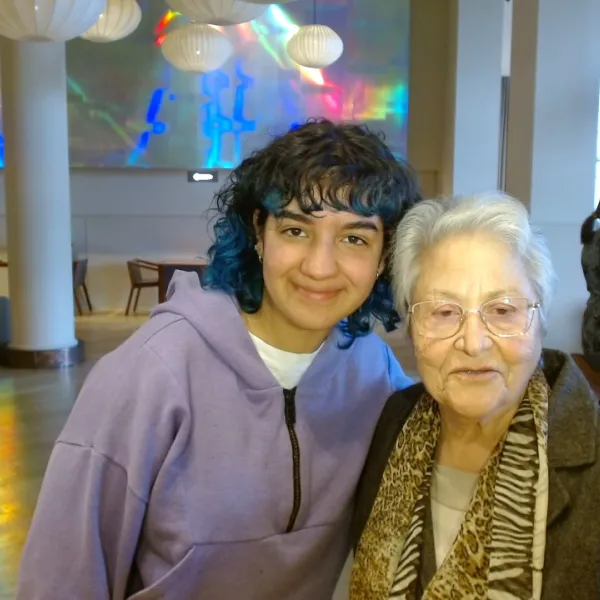
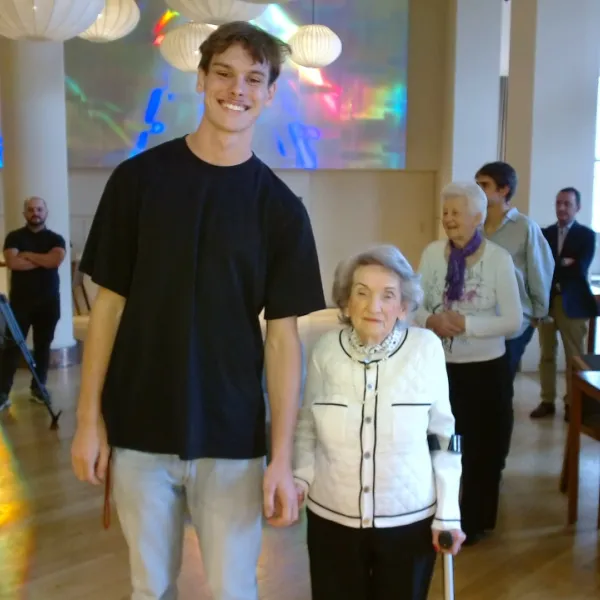
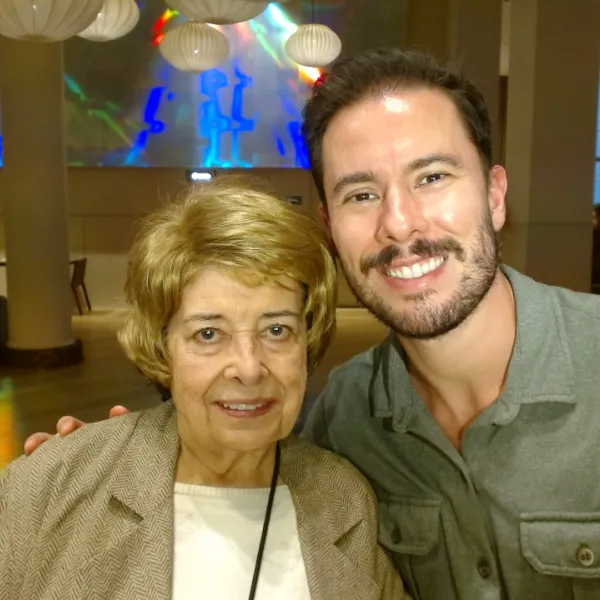
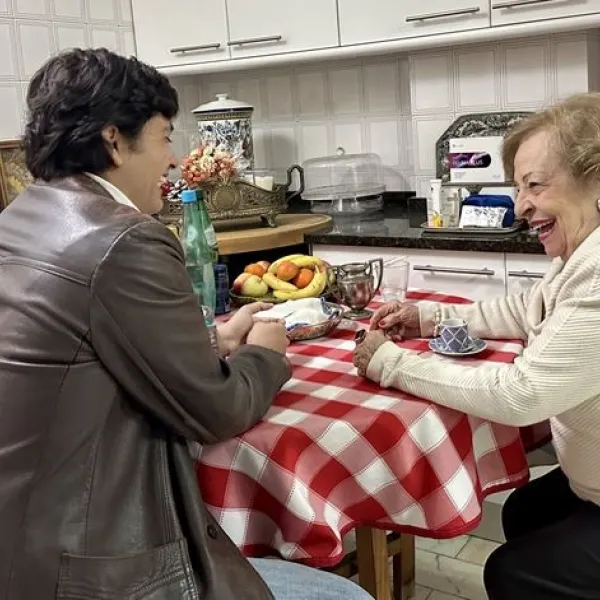
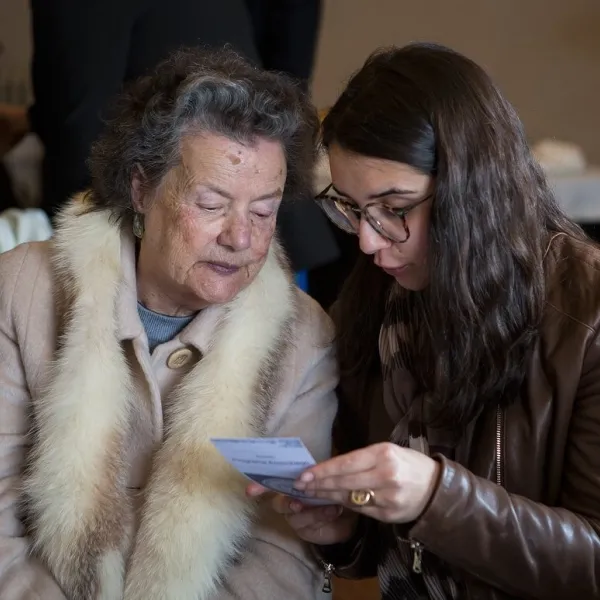
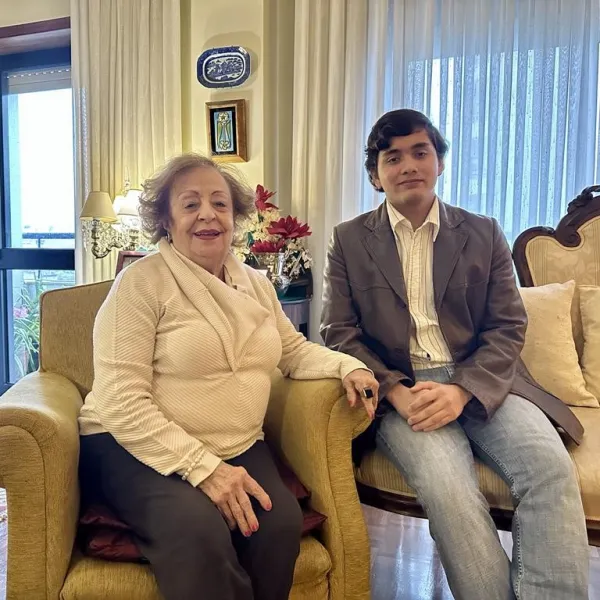
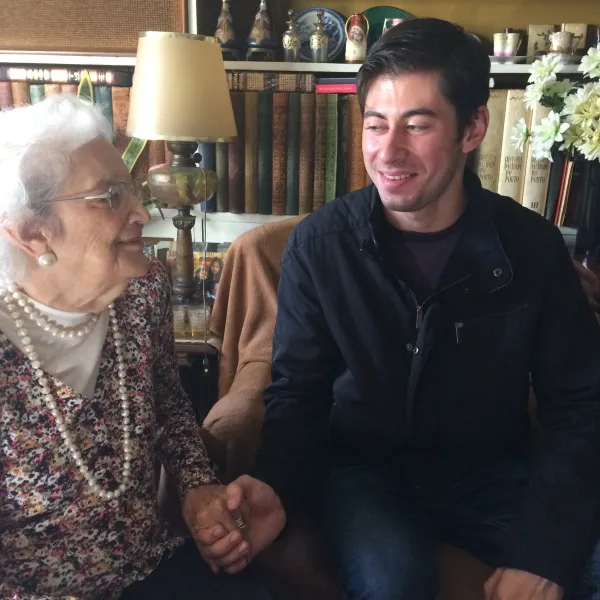
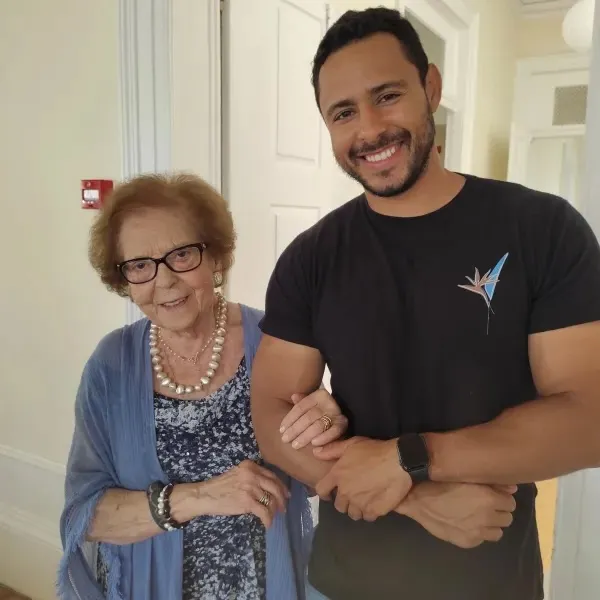
How’s It Going?
Over 20 years ago, the Aconchego program launched as a visionary prototype of social innovation. Since its first year, the model has served more than 500 people and is already being replicated in two other cities in Portugal—Mirandela and Oliveira de Azeméis. In fact, an "Aconchego Program Replication Guide" was created to streamline key details for interested parties and best define procedures that ensure the successful continuity and implementation of the model.
Over the past 20 years, no agreement between a senior and a student has ever been broken due to relationship failure, an impressive achievement that highlights participant satisfaction and a remarkable success rate.
The success of the Aconchego program has also drawn interest from other cities, including the nation’s capital, Lisbon. However, potentially the most meaningful endorsement occurred when a Brazilian city councillor, deeply moved by his own son's experience as a student participant in Porto, sought to replicate the program in Brazil. These various sources of interest highlight the individual and societal impacts of a program that fosters intergenerational connections to successfully tackle complex economic barriers to both aging in place and pursuing a degree.
The personal testimonies, including those of students who have invited seniors on family trips, seniors who treat students like family even after the agreement ends, or even a 102-year-old senior who has been involved in the program since it started, demonstrate the individual impact of the program. Each of these examples highlights a different dimension of how the Aconchego program offers citizens of Porto an effective alternative to isolation in old age, and immerses new or international students in Portuguese culture. At the same time, the program solidifies the social fabric of a nation that is increasingly modelling democratic resilience.
Considerations
Over the two decades of the Aconchego program’s existence, multiple considerations have emerged as critical to its success:
- A Large Population of Aging Individuals: One of the most important drivers of the program is its location in a city with a significant population of seniors who are looking for options to prolong living independently in their own homes. This is key to recruiting participants.
- An Organization of University Students: Not only is Porto home to more than ten universities, but it also has an organization, the Academic Federation of Porto, that streamlines communication and serves all students studying in Porto.
- Never “Forcing a Fit”: The dedicated team behind the program shares how important it is only to match two individuals it believes will make a good pair. Therefore, it is not uncommon to have a waitlist of both students and seniors if the right match is not available. For example, even in the last phase of interviews, if a student believes the senior’s home is too far from school, they can decline a potential match. Project organizers consider this selectivity crucial as it is better to prioritize a good match than force a fit that will not be beneficial for either individual.
Points of Contact
Maria Raquel Magalhães of Castello-Branco
Head of Department, Municipal Department of Social Cohesion (Departamento Municipal de Coesão Social)
Email: [email protected]
Hugo Tavares
Head of Division, Municipal Division of Development and Social Innovation (Divisão Municipal de Desenvolvimento e Inovação Social)
Email: [email protected]
Who Else Is Trying This?
- Center for Intergenerational Activity (Warsaw, Poland): Housing designed to integrate four social groups and multiple generations to foster community building, including senior citizens and a nursery.
- Belmont Village (Berkeley, California): A mixed-use development in partnership with the University of California at Berkeley that includes senior living, graduate student housing, and a school for young children.